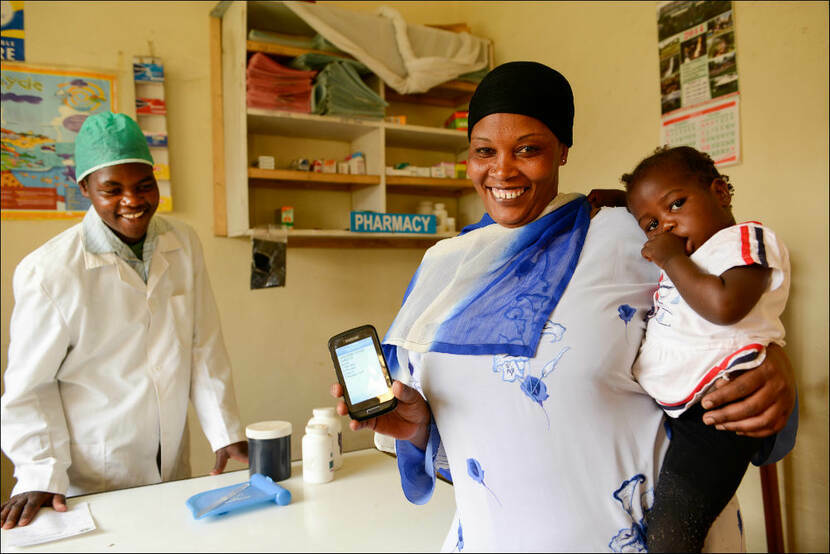Mobile Technology - the future of Health
Topics
At least 50% of the world’s population has no access to essential health care services. And about 100 million are pushed into extreme poverty because of out-of-pocket health expenses. Yet, 80% of the population in developing countries owns a mobile phone.
Mobile technology is indispensable for the development of inclusive and sustainable health financing systems. In countries where health markets are not functioning properly and where people are excluded from basic health services, mobile technology can help reach people at almost no marginal cost.
Future of Health Conference
How can mobile technology transform healthcare so that the millions of people currently lacking access will benefit ? This question was the topic of the Future of Health conference, organised by the Ministry of Foreign Affairs, PharmAccess and Joep de Lange Institute, together with The Financial Times. The conference brought together experts and changemakers including company CEOs, government ministers, health insurers and providers, startups, financing experts, international donors and NGOs. Goal: learning from each other, setting the agenda and creating new partnerships.
‘No matter where people live, everybody should have access to basic and affordable healthcare. They should not have to choose between selling their home or receiving healthcare’ - Soumya Swaminathan of the WHO.
How does the Netherlands contribute?
The Dutch Ministry of Foreign Affairs was one of the first to recognize the importance of financial innovations and mobile technology for the development of high-quality healthcare in developing countries. Through intensive cooperation with PharmAccess and CarePay (Health Insurance Fund), the Dutch MFA is contributing to the development of the online platform 'M-Tiba', which connects patients, insurers and healthcare institutions for the financing and delivery of high-quality care.
The online platform in Nigeria and Kenya receives strong support from the local government, which plays a catalytic role in mobilizing (private) investments in health care. From this successful collaboration between the private and public sectors, in which especially the disadvantaged have better access to high-quality care, lessons can be learned for the worldwide financing of health care.
Digital innovation and public private partnerships are key
The Netherlands have a track record in investing in digital innovations in education, work and healthcare to contribute to the transformative agenda and to lift people out of poverty. One of the aspects that makes it successful is the collaboration between different parties: governments, private sector, knowledge institutions and NGO's. As Minister Kaag states: ‘Worldwide, we can do a lot better in the public private sphere and we as the Netherlands will continue to encourage public private partnerships between governments, private sector knowledge institutions and NGO's. Everybody has a role to play. Therefore, I am a huge fan of SDG17.’
